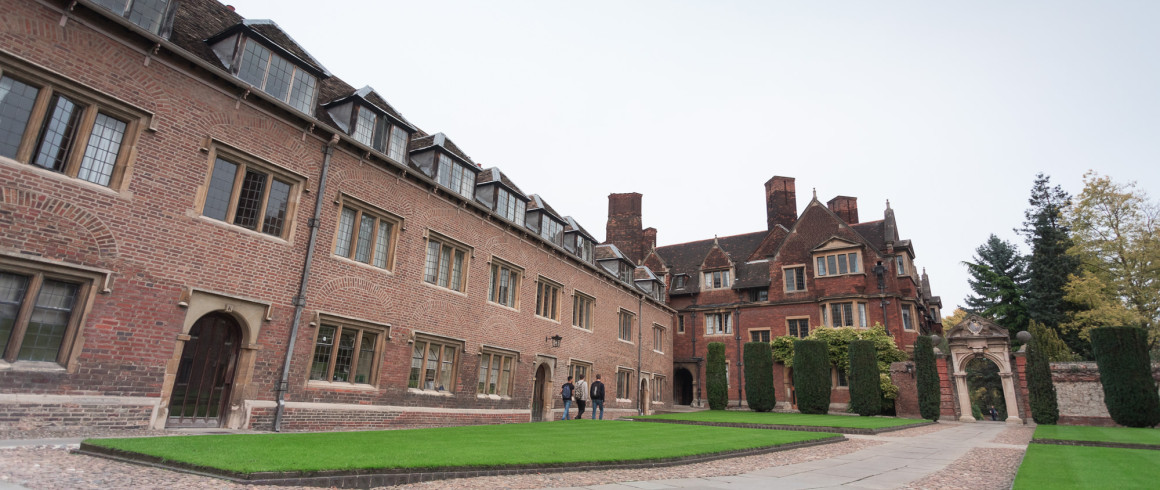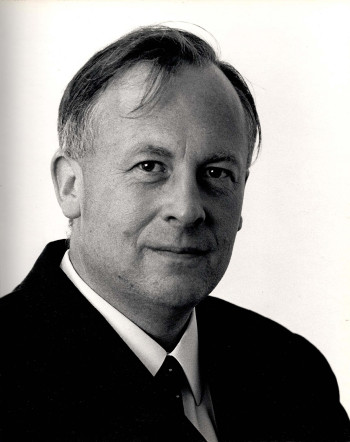Tony Nutbourne (1928-2021)
The College was saddened to learn of the death of Emeritus Fellow Tony Nutbourne (1947), who died on Wednesday 24th November at 93.
Lord Smith, Master of Pembroke, said, “Tony Nutbourne was a distinguished engineer and a much-loved Fellow of Pembroke. He was greatly admired by us all for the quality of both his teaching and his research. We will miss him sorely.”
Tony followed a less traditional route to a Fellowship than most of his peers. He was born in 1928 and educated at Dartmouth Naval College, taking his entrance interview on the day after the attack on Pearl Harbor. Tony recently reminisced that he didn't take any external exams at Dartmouth, and so never received a School Certificate or Higher School Certificate. He then spent two years based in Trincomallee, Ceylon (Sri Lanka), where he ran a pinnace with a (much older) Royal Marines crew.
In 1947, when he was 19, the Admiralty sent him to Pembroke as a Royal Navy-sponsored undergraduate. He read Mechanical Sciences, taking a First and winning the Ronald Wynn Prize.
After rejoining the Royal Navy, Tony briefly returned to Pembroke in 1955 to take the new Advanced Course on Control Engineering. He subsequently worked on the control of ship-based guided missiles, rising to the rank of Lieutenant Commander, eventually leaving the Navy in 1968 to take up a Lectureship in the Engineering Department, focusing on computer-aided design control engineering. When Professor Jan Maciejowski joined Pembroke as a Fellow, he recalls Tony researching computer-aided design of awkwardly-shaped things, such as car windscreens.
Tony was appointed a Fellow of Engineering at Pembroke in 1968, immediately taking on the role of Assistant Director of Studies in Engineering. In 1983, he became Director of Studies of Engineering.
"Tony was a star lecturer, who would practice his morning lectures at dawn and deliver them without notes - this to a second-year audience of nearly 300." Professor Maciewjowski also recalled sharing an office in Engineering with Tony, c.1978. "He had a very early word processor, which was about the same size as one of our desks."
After retiring from the Fellowship in 1988, Tony stayed in Cambridge to undertake research and worked for a local computer-aided-design company. One project he got involved with in Australia for a while was developing a robot sheep-shearer!
Tony was married to Pat, a doctor. They had six children and twelve grandchildren. A large part of their retirement was spent taking sub-groups of their many grandchildren on camping holidays in their campervan. Pat and Tony liked to go on wild camping holidays remote regions like Eastern Turkey, sleeping under the stars and travelling in ex-army trucks.
Tony regularly attended the Master’s summer parties and other events with Pat until 3 or 4 years ago. He was still communicating with the College and ex-students in the final few weeks of his life.
Pembroke alumnus Dr John Lumley (1972) recalls:
Tony Nutbourne had a most interesting route to being an Engineering Fellow at Pembroke. Leaving the Navy, he secured a position at the Engineering Department and Pembroke without any teaching or academic research experience. Indeed, he admitted that for some of his early lectures on vector algebra, he ‘learnt the subject’ shortly before lecturing! Tony’s lecturing brilliance was really appreciated by the undergraduates, many of whom remarked about his working without notes, straight onto the blackboard. But both the University and Pembroke benefitted - he helped turn Pembroke into one of the leading engineering colleges in the 70s, a situation which still prevails.
To those Pembroke engineers of the 70s and 80s who he supervised, the most important thing he brought was the enthusiasm and deep practical experience he’d had as a Naval Engineer. He passed that on along with an eclectic and wide approach to engineering in general. I well remember a supervision where the examples sheets were tossed aside, and the whole hour was spent examining the problems of digital control of a naval gun, which of course he worked on for the first such in the Royal Navy.

